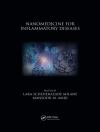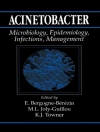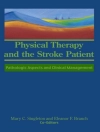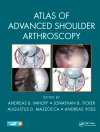This handbook provides the latest research related to quality of life and sustainability, taking into account social, economic, environmental, and political/governance aspects as well as specific socio-spatial contexts. The volume includes contributions from established and upcoming scholars from various disciplines and geographical contexts (Global South and North). The varying cultural and socio-spatial contexts of the authors in the selected cases contribute to first-hand knowledge on the realities of sustainability issues affecting the quality of life. The authors apply a wide diversity of methods and tools, which facilitates a unique understanding of the interlinkages between quality of life and sustainability. The chapters are grouped in three main sections: concepts and foundations; tools, techniques, and applications; and innovations. The authors provide their own view and theoretical approximation of the dimensions of sustainability, in particular on how these dimensions play out in relation to quality of life. The combination of sustainability and quality of life concepts and perspectives is particularly important in unravelling the multi-faceted nature of human, urban, rural/spatial development.
विषयसूची
Chapter 1. Introduction. Quality of Life and Sustainability, Socio-Spatial and Multidisciplinary Perspectives (Javier Martinez, Claudia Andrea Mikkelsen and Rhonda Phillips).- Part I: Foundations and Concepts (Theory, Conceptions of Sustainability and Quality of Life, Socio-Spatial Aspects).- Chapter 2. Tenure Responsive Land-Use Planning as a Tool for Improving Quality of Life: The Perspective of Sub-Saharan Africa (Uchendu Eugene Chigbu).- Chapter 3. Guidelines for Healthier Public Spaces for the Elderly Population: Recommendations in the Spanish Context (Ester Higueras Garcia, Emilia Román and José Fariña).- Chapter 4. A Multi-Perspective Discourse on the Sustainability of Water and Sanitation Service Co-Production in Global South Cities (Giuseppe Faldi, Federica Natalia Rosati, Luisa Moretto and Jacques Teller).- Chapter 5. Rwanda: Planned Reconstruction for Social Quality (Pamela Abbott, Roger Sapsford and Claire Wallace).- Chapter 6. A Theoretical Reflection Based on Children’s Opinions about their Safety to Rethink Different Dimensions of Sustainability in Cities (Damián Molgaray).- Chapter 7. The Nexus of the UN Sustainable Development Goals and their Link to Quality of Life: A Case of Urbanization in Ethiopia and India (Andrea Höltl, Tania Berger, Romana Bates, Meseret Kassie Desta, Ainsley Lewis, Daniel Semunugus and Hussain Indorewala).- Chapter 8. Multiple Perspectives on the Meaning and Effects of Resiliency (Stephen Buckman and Andrew Kim).- Part II: Tools, Techniques, and Applications (Case Studies and Methodologies).- Chapter 9. Are Expanded Resilience Capacities Associated with Better Quality-Of-Life Outcomes? Evidence from Poor Households Grappling with Climate Change in Bangladesh, Chad, India and Nepal (Boudewijn Weijermars, Caroline Hodges and Patrick Guyer).- Chapter 10. Sustainable Latin American Cities? Evaluation of the Sustainability of the City of Puebla (Mexico) Using Indicators (Laura Zulaica, Emilia Lara Galindo and Ángel David Flores Domínguez).- Chapter 11. Quality of life, Sustainability and Transport: The Case of Melbourne, Australia (Robin Goodman, Annette Kroen and Melanie Davern).- Chapter 12. Territorial Equity Measurement in Buenos Aires Province (Argentina) (Alejandra Auer; Claudia Mikkelsen and Sofia Ares).- Chapter 13. Protecting Quality of Life: Protected Needs as a Point of Reference for Perceived Ethical Obligation (Switzerland) (Rico Defila and Antonietta Di Giulio).- Chapter 14. Geography and Quality of Life in Argentine Regions: Socioeconomic and Environmental Inequalities (Guillermo Ángel Velázquez and Juan Pablo Celemín).- Chapter 15. A City for Whom? Marginalization and The Production of Space in Contemporary (India) (Chloe Pottinger Glass & Karin Pfeffer).- Chapter 16. Risk Management of Groundwater Pollution, Sustainability and Quality of Life: The Gap Between Theory and Practice in an Intermediate City of the Global South (Mar Del Plata, Argentina) (Agustina Barilari, Gabriela Calderón & Hector Massone).- Chapter 17. Exploring the Association between Health Disparities and Neighborhood Characteristics: The Case of Diabetes Mortality in De Kalb and Fulton Counties, Georgia (Deden Rukmana).- Chapter 18. Quality of Life in Relation to Urban Areas and Sustainability. Application Case: City of La Plata, Buenos Aires, Argentina (Carlos Discoli, Irene Martini & Dante Barbero).- Chapter 19. Social Sustainability, Neighbourhood Cohesion and Quality of Life: A Tale of Two Suburbs in Calgary (Sasha Tsenkova and Karim Youssef).- Chapter 20. Rural Smart Shrinkage and Perceptions of Quality of Life in the American Midwest (Kimberly E. Zarecor, David J. Peters & Sara Hamideh).- Chapter 21. Ecosystem Services of Ecological Infrastructure and Quality of Life: Contributions to the Analysis of the Sustainability of the Urban and Peri-Urban Area of Mar Del Plata, Argentina (Camila Magalí Mujica & Clara María Karis).- Part III: Innovations.- Chapter 22. An Innovative Practice of Social Sustainability: The Fight for a New Housing Legal Framework in Spain (Eva Álvarez de Andrés).- Chapter 23. Cities Rethinking Smart-Oriented Pathways for Urban Sustainability (Mauro Romanelli).- Chapter 24. Public Useable Space as a Catalyst for Quality of Life Improvement – The Case of Cape Town’s Social Farming Projects (Astrid Ley, Kurt Ackermann, Silvia Beretta, Sigrid Busch, Jan Dieterle, Manal M.F. El-Shahat, Ain Shams University, Jilan Hosni, Franziska Laue, Yassine Moustanjidi &Veronika Stützel).- Chapter 25. The Potentials and Risks of Wadis in Cities in the Gulf Region (Wolfgang Scholz, Mathias Kaiser & Matthias Pallasch).- Chapter 26. The Crossroads on the Path to Sustainability while Aspiring for a Better Quality of Life: A Case of Delhi (Bibhu Kalyan Nayak & Pushkala Rajan).- Chapter 27. Urban Linkages: a Methodological Framework for Improving Resilience in Peripheral Areas. The Case of Arequipa, Peru (Carlos Zeballos-Velarde).
लेखक के बारे में
Javier Martinez is Associate Professor in the Department of Urban and Regional Planning and Geo-Information Management within the Faculty of Geo-Information Science and Earth Observation (ITC), University of Twente, the Netherlands. He is also coordinator of the Urban Planning and Management specialization of the two-year master’s degree in geo-information science and earth observation. He graduated as an architect from the Faculty of Architecture, Planning and Design of Rosario National University (UNR), Argentina, and earned his MSc in Geo-Information for Urban Planning from ITC. He earned his Ph D from the Faculty of Geosciences, Utrecht University, for his thesis Monitoring Intra-Urban Inequalities with GIS-Based Indicators: With a Case Study in Rosario, Argentina. Between 1999 and 2001, he worked in Argentina in the Office of Strategic Planning in Rosario (PER) designing its Urban Indicators System. His research, publications and teaching experience are focused on the application of GIS, mixed methods and indicators for policymaking, urban poverty and quality-of-life and intra-urban inequalities. From 2010 up until November 2014, he was Co-Coordinator of the Network-Association of European Researchers on Urbanization in the South (N-AERUS). Since 2017, he has been a member of the board of directors of the International Society of Quality of Life Studies (ISQOLS).
Claudia Mikkelsen is Research Associate of the National Council of Scientific and Technical Research (CONICET), Argentina. She did her post-doctoral Studies in the Quality of Life Program at the National University of Lomas de Zamora. She is Co-director of Population and Territory Studies Group (GESPy T), Institute of Humanities and Social Sciences (INHUS), CONICET, Faculty of Humanities. National University of Mar del Plata, Member of Geographical Research Center (CIG), and Faculty of Human Sciences, National University of the Center. She is also Invited Professor at the Master of Social Sciences at the University of Palermo (2018-2020), and Member, International Survey of Children’s Well-Being (ISCIWEB), Argentina.
Rhonda Phillips focuses research and outreach efforts on quality of life and well-being related to community and economic development. At Purdue, she serves as Dean of the Honors College, and a Professor in the Agricultural Economics Department. Rhonda is author or editor of 30 books, including Sustainable Communities, Creating a Durable Local Economy; Community Development Indicators Measuring Systems; and Introduction to Community Development. She is editor of the Springer book series Community Quality of Life and Well-Being. Formerly a Senior Sustainability Scientist with the Global Institute of Sustainability, Rhonda served as director and professor in the School of Community Resources and Development at Arizona State University, and founding director of the University of Florida’s Center for Building Better Communities. She is a member of the College of Fellows of the American Institute of Certified Planners (FAICP). She is past President of the International Society for Quality-of-Life Studies and a co-researcher with the Community Wellbeing Institute, a Social Science Korea Project.












